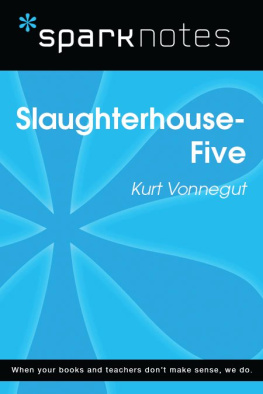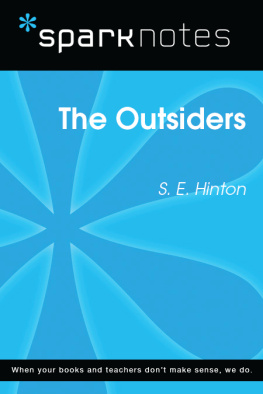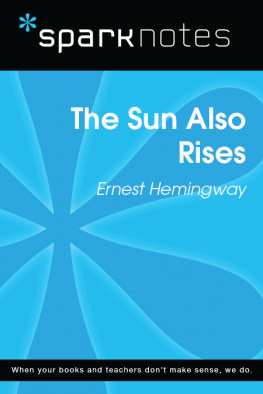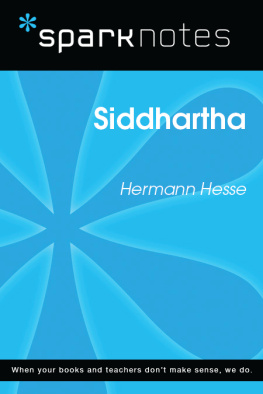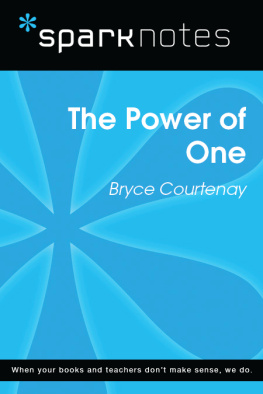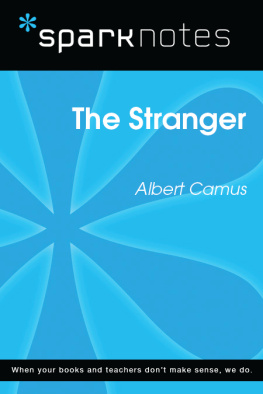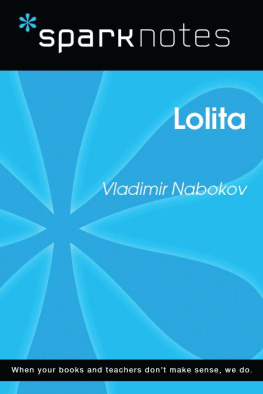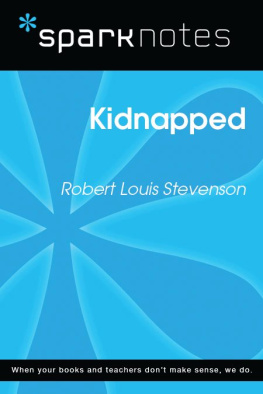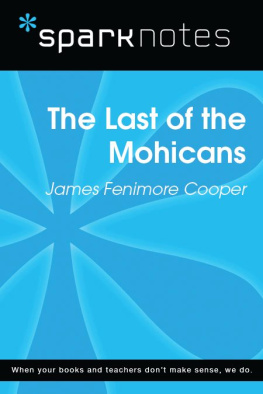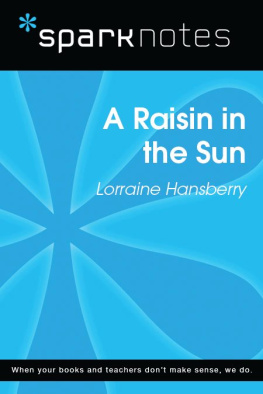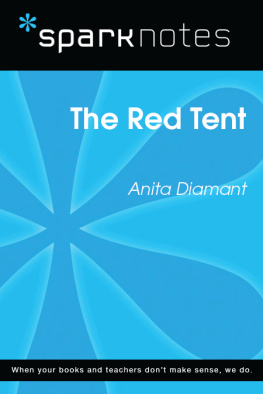SparkNotes - Slaughterhouse 5
Here you can read online SparkNotes - Slaughterhouse 5 full text of the book (entire story) in english for free. Download pdf and epub, get meaning, cover and reviews about this ebook. year: 2014, publisher: Spark, genre: Art. Description of the work, (preface) as well as reviews are available. Best literature library LitArk.com created for fans of good reading and offers a wide selection of genres:
Romance novel
Science fiction
Adventure
Detective
Science
History
Home and family
Prose
Art
Politics
Computer
Non-fiction
Religion
Business
Children
Humor
Choose a favorite category and find really read worthwhile books. Enjoy immersion in the world of imagination, feel the emotions of the characters or learn something new for yourself, make an fascinating discovery.
- Book:Slaughterhouse 5
- Author:
- Publisher:Spark
- Genre:
- Year:2014
- Rating:5 / 5
- Favourites:Add to favourites
- Your mark:
- 100
- 1
- 2
- 3
- 4
- 5
Slaughterhouse 5: summary, description and annotation
We offer to read an annotation, description, summary or preface (depends on what the author of the book "Slaughterhouse 5" wrote himself). If you haven't found the necessary information about the book — write in the comments, we will try to find it.
Making the reading experience fun!
Created by Harvard students for students everywhere, SparkNotes is a new breed of study guide: smarter, better, faster. Geared to what todays students need to know, SparkNotes provides: *Chapter-by-chapter analysis
*Explanations of key themes, motifs, and symbols
*A review quiz and essay topicsLively and accessible, these guides are perfect for late-night studying and writing papers
Slaughterhouse 5 — read online for free the complete book (whole text) full work
Below is the text of the book, divided by pages. System saving the place of the last page read, allows you to conveniently read the book "Slaughterhouse 5" online for free, without having to search again every time where you left off. Put a bookmark, and you can go to the page where you finished reading at any time.
Font size:
Interval:
Bookmark:

2003, 2007 by Spark Publishing
This Spark Publishing edition 2014 by SparkNotes LLC, an Affiliate of Barnes & Noble
All rights reserved. No part of this publication may be reproduced, stored in a retrieval system, or transmitted in any form or by any means (including electronic, mechanical, photocopying, recording, or otherwise) without prior written permission from the publisher.
Sparknotes is a registered trademark of SparkNotes LLC
Spark Publishing
A Division of Barnes & Noble
120 Fifth Avenue
New York, NY 10011
www.sparknotes.com /
ISBN-13: 978-1-4114-7765-0
Please submit changes or report errors to www.sparknotes.com/.
10 9 8 7 6 5 4 3 2 1
K urt Vonnegut, Jr. was born in Indianapolis in 1922 , a descendant of prominent German-American families. His father was an architect and his mother was a noted beauty. Both spoke German fluently but declined to teach Kurt the language in light of widespread anti-German sentiment following World War I. Family money helped send Vonneguts two siblings to private schools. The Great Depression hit hard in the 1930 s, though, and the family placed Kurt in public school while it moved to more modest accommodations. While in high school, Vonnegut edited the schools daily newspaper. He attended college at Cornell for a little over two years, with instructions from his father and brother to study chemistry, a subject at which he did not excel. He also wrote for the Cornell Daily Sun. In 1943 he enlisted in the U.S. Army. In 1944 his mother committed suicide, and Vonnegut was taken prisoner following the Battle of the Bulge, in the Ardennes Forest of Belgium.
After the war, Vonnegut married and entered a masters degree program in anthropology at the University of Chicago. He also worked as a reporter for the Chicago City News Bureau. His masters thesis, titled Fluctuations Between Good and Evil in Simple Tales, was rejected. He departed for Schenectady, New York, to take a job in public relations at a General Electric research laboratory.
Vonnegut left GE in 1951 to devote himself full-time to writing. During the 1950 s, Vonnegut published short stories in national magazines. Player Piano, his first novel, appeared in 1952 . Sirens of Titan was published in 1959 , followed by Mother Night ( 1962 ), Cats Cradle ( 1963 ), God Bless You, Mr. Rose-water ( 1965 ), and his most highly praised work, -Slaughterhouse-Five ( 1969 ). Vonnegut continues to write prolifically.
Slaughterhouse-Five treats one of the most horrific massacres in European historythe World War II firebombing of Dresden, a city in eastern Germany, on February , 1945 with mock-serious humor and clear antiwar sentiment. More than 130,000 civilians died in Dresden, roughly the same number of deaths that resulted from the Allied bombing raids on Tokyo and from the atomic bomb dropped on Hiroshima, both of which also occurred in 1945 . Inhabitants of Dresden were incinerated or suffocated in a matter of hours as a firestorm sucked up and consumed available oxygen. The scene on the ground was one of unimaginable destruction.
The novel is based on Kurt Vonneguts own experience in World War II. In the novel, a prisoner of war witnesses and survives the Allied forces firebombing of Dresden. Vonnegut, like his pro-tagonist Billy Pilgrim, emerged from a meat locker beneath a slaughter-house into the moonscape of burned-out Dresden. His surviving captors put him to work finding, burying, and burning bodies. His task continued until the Russians came and the war ended. Vonnegut survived by chance, confined as a prisoner of war ( POW ) in a well-insulated meat locker, and so missed the cataclysmic moment of attack, emerging the day after into the charred ruins of a once-beautiful cityscape. Vonnegut has said that he always intended to write about the experience but found himself incapable of doing so for more than twenty years. Although he attempted to describe in simple terms what happened and to create a linear narrative, this strategy never worked for him. Billy Pilgrims unhinged timeshifting, a mechanism for dealing with the unfathomable aggression and mass destruction he witnesses, is Vonneguts solution to the problem of telling an untellable tale.
Vonnegut wrote Slaughterhouse-Five as a response to war. It is so short and jumbled and jangled, he explains in Chapter , because there is nothing intelligent to say about a massacre. The jumbled structure of the novel and the long delay between its conception and completion serve as testaments to a very personal struggle with heart-wrenching material. But the timing of the novels publication also deserves notice: in 1969 , the United States was in the midst of the dismal Vietnam War. Vonnegut was an outspoken pacifist and critic of the conflict. Slaughterhouse-Five revolves around the willful incineration of 100,000 civilians, in a city of extremely dubious military significance, during an arguably just war. Appearing when it did, then, Slaughterhouse-Five made a forceful statement about the campaign in Vietnam, a war in which incendiary technology was once more being employed against nonmilitary targets in the name of a dubious cause.
Note: Billy Pilgrim, the novels protagonist, has become unstuck in time. He travels between periods of his life, unable to control which period he lands in. As a result, the narrative is not chronological or linear. Instead, it jumps back and forth in time and place. The novel is structured in small sections, each several paragraphs long, that describe various moments of his life.
illy Pilgrim is born in 1922 and grows up in Ilium, New York. A funny-looking, weak youth, he does reasonably well in high school, enrolls in night classes at the Ilium School of Optometry, and is drafted into the army during World War II. He trains as a chaplains assistant in South Carolina, where an umpire officiates during practice battles and announces who survives and who dies before they all sit down to lunch together. Billys father dies in a hunting accident shortly before Billy ships overseas to join an infantry regiment in Luxembourg. Billy is thrown into the Battle of the Bulge in Belgium and is immediately taken prisoner behind German lines. Just before his capture, he experiences his first incident of timeshifting: he sees the entirety of his life, from beginning to end, in one sweep.
Billy is transported in a crowded railway boxcar to a POW camp in Germany. Upon his arrival, he and the other privates are treated to a feast by a group of fellow prisoners, who are English officers who were captured earlier in the war. Billy suffers a breakdown and gets a shot of morphine that sends him time-tripping again. Soon he and the other Americans travel onward to the beautiful city of Dresden, still relatively untouched by wartime privation. Here the prisoners must work for their keep at various labors, including the manufacture of a nutritional malt syrup. Their camp occupies a former slaughterhouse. One night, Allied forces carpet bomb the city, then drop incendiary bombs to create a firestorm that sucks most of the oxygen into the blaze, asphyxiating or incinerating roughly 130,000 people. Billy and his fellow POW s survive in an airtight meat locker. They emerge to find a moonscape of destruction, where they are forced to excavate corpses from the rubble. Several days later, Russian forces capture the city, and Billys involvement in the war ends.
Billy returns to Ilium and finishes optometry school. He gets engaged to Valencia Merble, the obese daughter of the schools founder. After a nervous breakdown, Billy commits himself to a veterans hospital and receives shock treatments. During his stay in the mental ward, a fellow patient introduces Billy to the science fiction novels of a writer named Kilgore Trout. After his recuperation, Billy gets married. His wealthy father-in-law sets him up in the optometry business, and Billy and Valencia raise two children and grow rich. Billy acquires the trappings of the suburban American dream: a Cadillac, a stately home with modern appliances, a bejeweled wife, and the presidency of the Lions Club. He is not aware of keeping any secrets from himself, but at his eighteenth wedding anniversary party the sight of a barbershop quartet makes him break down because, he realizes, it triggers a memory of Dresden.
Font size:
Interval:
Bookmark:
Similar books «Slaughterhouse 5»
Look at similar books to Slaughterhouse 5. We have selected literature similar in name and meaning in the hope of providing readers with more options to find new, interesting, not yet read works.
Discussion, reviews of the book Slaughterhouse 5 and just readers' own opinions. Leave your comments, write what you think about the work, its meaning or the main characters. Specify what exactly you liked and what you didn't like, and why you think so.

